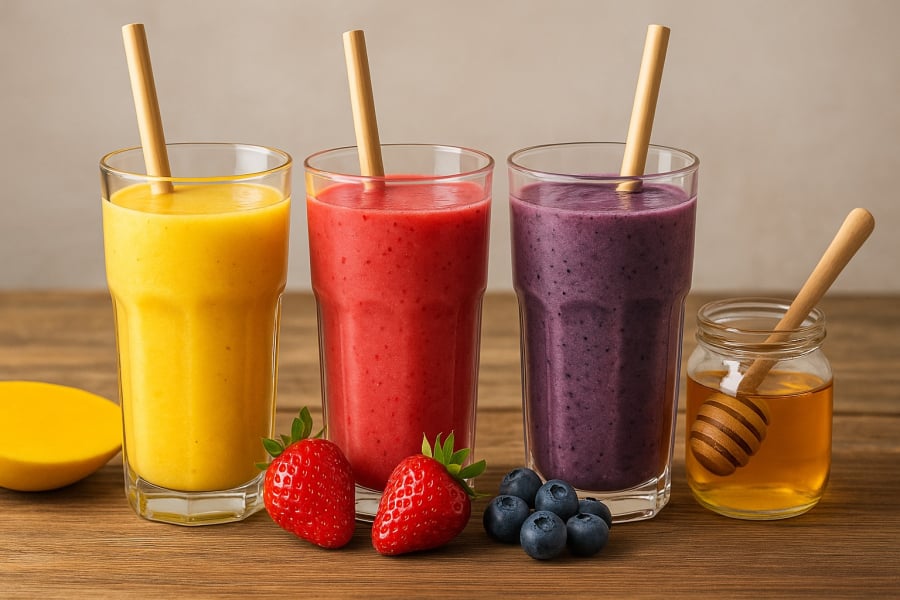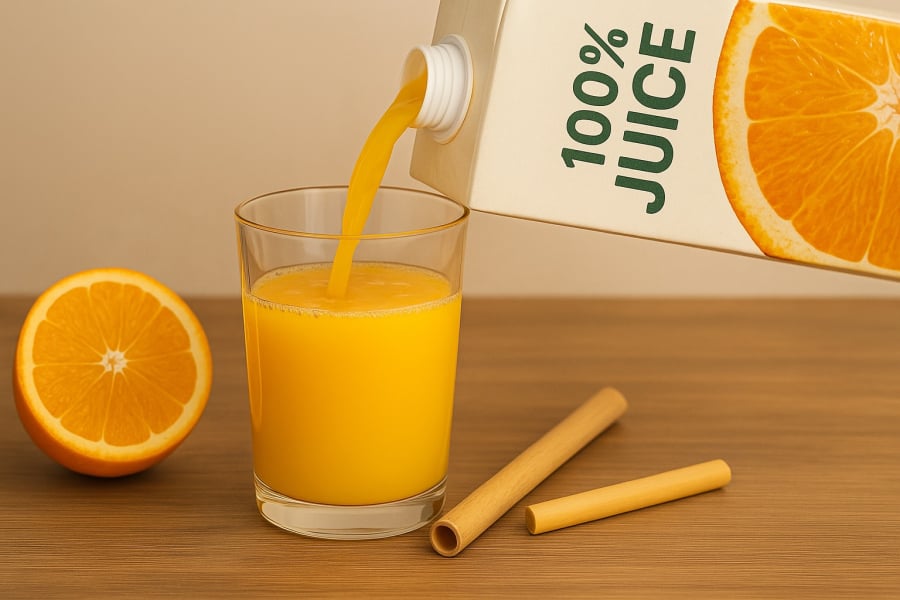Fruit Smoothies: Nutritious but Not Always Healthy
The mention of “fruit smoothies” often evokes a perception of a wholesome and healthy dietary choice. But is that truly the case?
Blending fruits breaks down fiber, converting the natural fruit sugar (fructose) into “free sugar,” which is easily absorbed into the bloodstream, leading to a rapid spike in blood sugar levels. Moreover, a typical smoothie often combines multiple fruits and sometimes includes additional sweeteners like condensed milk, honey, or syrup, resulting in a dangerously high overall sugar content.
“I used to drink smoothies every morning, believing they were good for my skin and weight loss. But I was shocked to see my blood sugar levels surge after consuming them,” shared Mai, aged 34.
Solution: Opt for whole fruits instead of blended ones, and refrain from adding extra sweeteners to your smoothies.

Fruit Juices: Naturally Sweet but Deceptively Sugary
A glass of freshly squeezed apple or orange juice might seem like the perfect morning beverage, but don’t be fooled by its natural sweetness.
Juicing, even when done at home, removes most of the fiber—a crucial component that slows down sugar absorption. Many individuals unknowingly consume the equivalent of two cans of soda in sugar by drinking a large bottle of juice daily.
A study published in The American Journal of Clinical Nutrition revealed that daily fruit juice drinkers had a higher risk of developing type 2 diabetes compared to those who ate whole fruits.
“Instead of drinking fruit juice, opt for eating a whole apple or orange. This will not only keep you fuller for longer but also prevent sudden blood sugar spikes,” advised Dr. Nguyen Minh Tuan from the Ho Chi Minh City Institute of Nutrition.

Oat Milk: A Trendy but Selective Choice
Oat milk is currently a rising star in the world of plant-based beverages—lactose-free, vegan-friendly, and delightfully flavorful. However, what many don’t realize is that this milk alternative contains high levels of maltose, a sugar with a glycemic index of 105, surpassing that of table sugar (GI ~ 65). This means that a single morning serving of oat milk could send your blood sugar levels soaring if not consumed in moderation.
Additionally, many oat milk brands add refined sugar or syrup to enhance the flavor, making the product “dangerously sweet.”
Recommendation: If you still enjoy plant-based milk, opt for the “unsweetened” variety and pair it with protein- or healthy fat-rich foods to slow down sugar absorption.
Beverage Choices for Managing Blood Sugar
- Water: Always the number one choice—zero calories, zero sugar, and essential for smooth bodily functions.
- Green tea: Rich in antioxidants and known for its potential benefits in blood sugar control.
- Low-sugar vegetable juices: Such as celery, cucumber, or spinach juice; consume freshly squeezed and avoid adding salt or sugar.
- Diluted lemon water: Refreshing and palate-cleansing, without impacting blood sugar levels.
Conclusion
A seemingly harmless smoothie or glass of juice can significantly impact your blood sugar levels if consumed inappropriately. Be a savvy consumer—read labels, choose unsweetened and low-calorie options, and, most importantly, listen to your body.






























